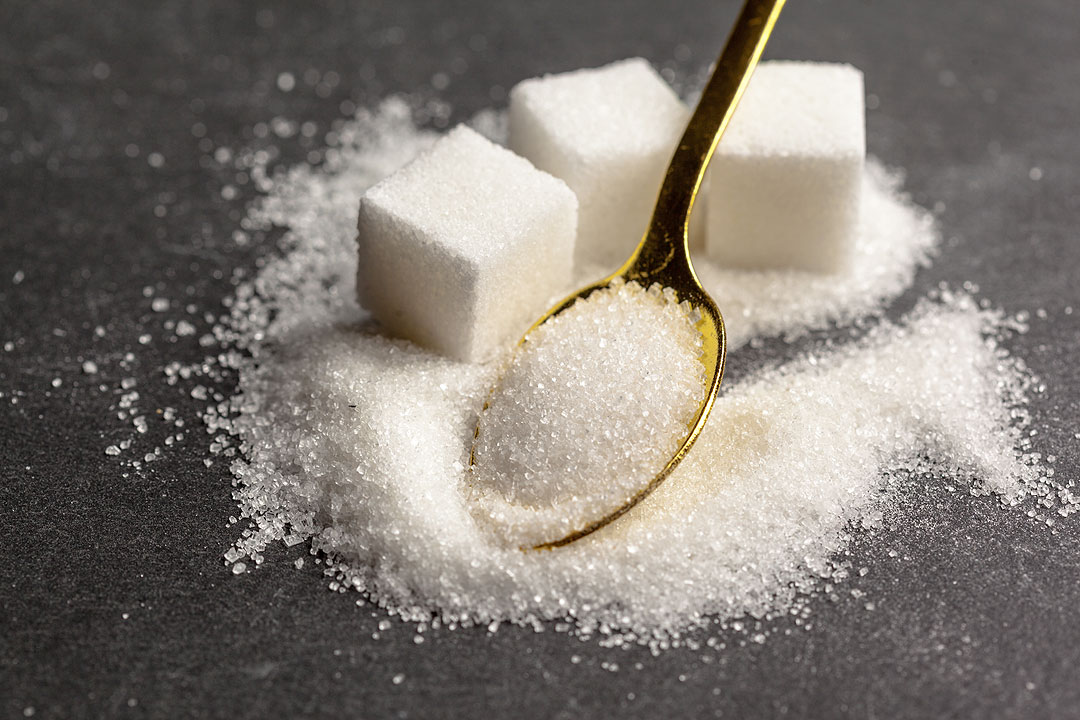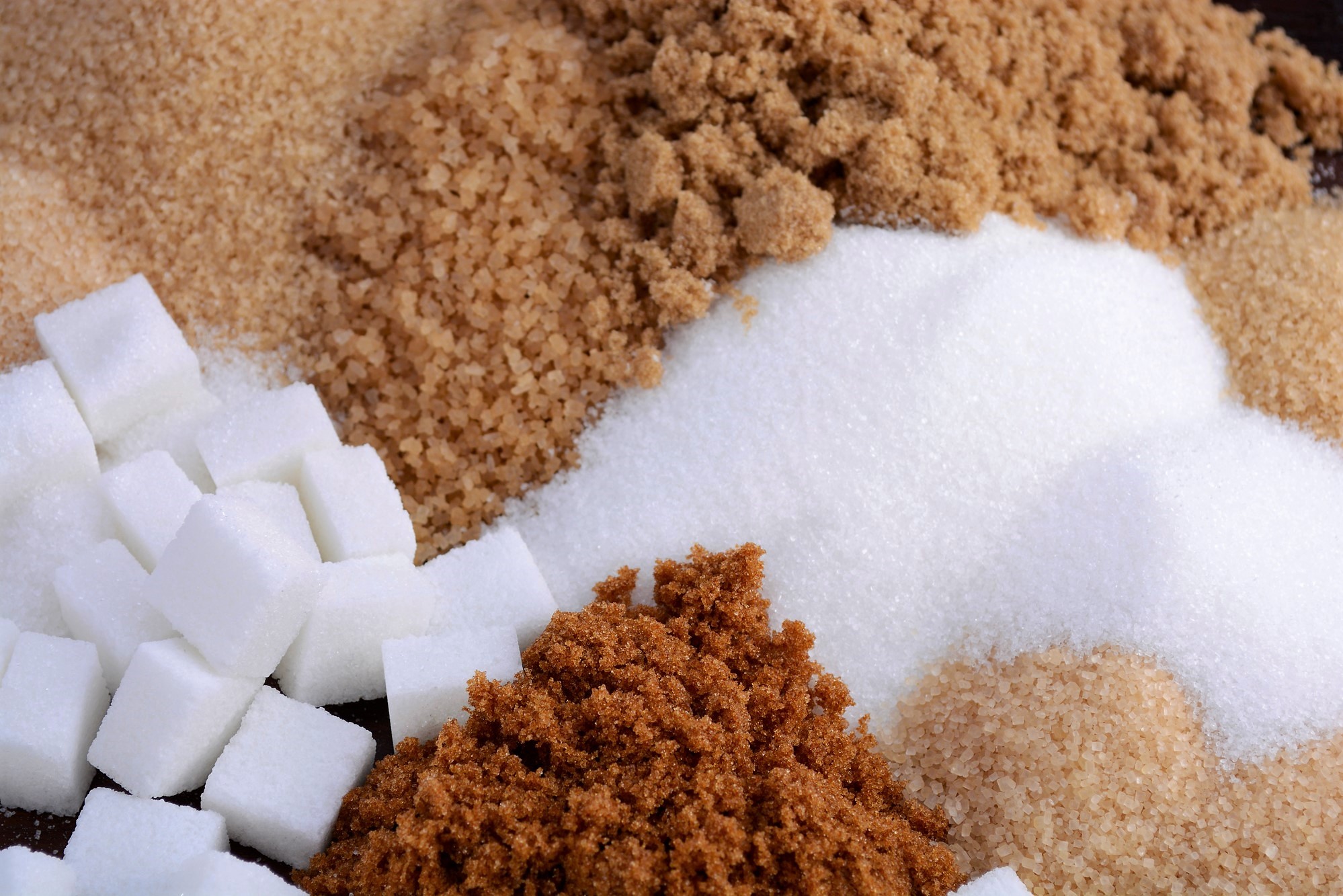Have you ever felt that heavy, sluggish feeling after a sweet treat, like your get-up-and-go just got up and went? That sensation, a kind of deep tiredness, is what many of us call the "sugar and sloth" connection. It's a common experience, you know, when a quick burst of energy seems to vanish, leaving you wanting to just chill out and do very little.
Sugar, it seems, has a bittersweet reputation when it comes to health. We often reach for it for a quick pick-me-up, but the truth is, too much added sugar can be one of the greatest threats to cardiovascular disease. It's a bit of a tricky thing, isn't it? That immediate comfort can sometimes lead to bigger health worries later on, and also, very quickly, to feeling quite lazy.
Many of us consume too much added sugar, and this can really impact how we feel day to day. Adults and young adults in the U.S., for instance, consume on average about 17 teaspoons of added sugar every day. That's more than two to three times the recommended amount, so, it's quite a lot. This article will help you understand sugar better and show you how to curb your sweet habit to feel more lively and less like a sloth.
Table of Contents
- The Sweet Trap: Understanding Sugar's Impact
- From Sugar Rush to Sloth: The Energy Rollercoaster
- Breaking Free: Curbing Your Sweet Habits
- Frequently Asked Questions
The Sweet Trap: Understanding Sugar's Impact
Sugar is one type of carbohydrate, as are fiber and starch. It's a pretty big part of what we eat, and it comes in many forms. Understanding what sugar is, and where it comes from, can help us see why it affects our energy levels and overall well-being. It's not just one thing, you see, but a whole group of substances that taste sweet.
What is Sugar, Anyway?
Sucrose is simply the chemical name for sugar, the simple carbohydrate we know and love that is produced naturally in all plants. This includes fruits, vegetables, and even nuts, so, it's very widespread in nature. Sugar magnification of grains of sucrose, the most common sugar, really shows how tiny these sweet crystals are.
Sugar is the common name for several chemical substances, some of which taste sweet. Mostly, it refers to sucrose, lactose, or other similar compounds. There are many types of sugar, each with their own level of sweetness and calorie content. All carbohydrates are made up from three simple sugars known as monosaccharides, which are the basic building blocks, you might say.
The white stuff we know as sugar is sucrose, a molecule composed of 12 atoms of carbon, 22 atoms of hydrogen, and 11 atoms of oxygen (C12H22O11). Simple sugars, also called monosaccharides, include glucose, fructose, and galactose. Whether you have a sweet tooth or not, it’s important to know the benefits and consequences of all three kinds of sugar, actually.
Added vs. Natural: A Key Difference
Sugar 101 means understanding the two types of sugars there are in foods. There are naturally occurring sugars and added sugars. Naturally occurring sugars are found in whole, unprocessed foods like fruits and vegetables. These come with fiber and other good things, which help your body handle the sugar in a gentler way. It's a much different experience for your system, you know.
Added sugars, on the other hand, are put into foods during processing or preparation. Think about sodas, candies, baked goods, and even many breakfast cereals. These often lack the fiber and nutrients that come with natural sugars, which means your body processes them very differently. This distinction is really important for your health and how you feel, more or less.
Many of us consume too much added sugar. As mentioned earlier, adults and young adults in the U.S. consume on average about 17 teaspoons of added sugar every day. This amount is more than two to three times what's generally considered healthy. This extra sugar can be a big reason for feeling tired and sluggish, which connects right back to the idea of sugar and sloth, doesn't it?
From Sugar Rush to Sloth: The Energy Rollercoaster
You might grab a sugary snack for a quick energy boost, but often, that burst is followed by a noticeable dip. This rollercoaster effect is a classic sign of how sugar impacts your energy. It’s a temporary high, often leading to a feeling of being worn out, a bit like a deflated balloon, you know.
The Immediate Aftermath: Why You Feel Tired
Sugar begins entering your bloodstream within minutes of eating. This rapid entry causes a quick spike in your blood sugar levels. Your body then releases a lot of insulin to handle this sugar, trying to bring those levels back down. This swift action by your body is what often leads to the "sugar crash."
Usually, sugar clears from your system within two to three hours, but the exact timing can vary and depends on a few things, like what else you ate and your own body. When your blood sugar drops quickly after that initial spike, you might feel tired, irritable, and unfocused. This is that immediate feeling of sloth setting in, and it's quite common for many people.
The Long-Term Link: Sugar and Your Vitality
Beyond the immediate energy crash, consistently consuming too much added sugar can have longer-lasting effects on your overall vitality. It's not just about feeling tired for a few hours. Over time, high sugar intake can contribute to chronic tiredness and a general lack of get-up-and-go. This is a big part of the sugar and sloth connection.
As my text points out, too much added sugar can be one of the greatest threats to cardiovascular disease. When your body is constantly dealing with high sugar levels, it puts a strain on your system. This strain can impact various bodily functions, including those that regulate your energy. So, a diet high in added sugar can make you feel perpetually less energetic, you know, and less inclined to be active.
Breaking Free: Curbing Your Sweet Habits
The good news is that you can take steps to curb your sweet habit and reclaim your energy. It's about making small, thoughtful changes that add up over time. You don't have to give up all sweetness, but rather, learn to enjoy it in ways that support your health and energy levels, which is a big deal for feeling good.
Practical Steps to Reduce Added Sugar
One way to start is by checking food labels. Added sugars can hide under many names, like corn syrup, dextrose, and maltose. Knowing what to look for helps you make more informed choices. It's a simple step, but really, it makes a big difference in reducing your overall sugar intake, especially in processed foods.
Another helpful step is to cut back on sugary drinks. Sodas, sweetened teas, and fruit juices with added sugar are big sources of extra sugar in many people's diets. Choosing water, plain sparkling water, or unsweetened tea instead can significantly reduce your daily sugar consumption. This can help prevent those quick sugar spikes and subsequent energy dips, you know.
You might also try to cook more meals at home. When you prepare your own food, you have full control over the ingredients, including how much sugar goes into your dishes. This is a very effective way to lower your added sugar intake and ensure you're eating more wholesome foods. It also gives you a chance to explore new flavors, too.
Gradually reducing the sugar you add to coffee, tea, or cereal can also help your taste buds adjust. Your palate can actually change over time, finding less sugary things just as satisfying. It's a slow process, perhaps, but a rewarding one for your energy and health, and it's quite doable for most people.
Finding Sweetness in Healthy Ways
Instead of reaching for processed sweets, try enjoying naturally sweet foods. Fruits are a great option, as they provide natural sugars along with fiber, vitamins, and minerals. A piece of fruit can satisfy a sweet craving without the harsh energy crash that often comes with added sugars. It's a much gentler way to enjoy sweetness, you see.
You could also explore spices like cinnamon, nutmeg, or vanilla extract to add flavor and a sense of sweetness to your foods without extra sugar. These can be really lovely in oatmeal, yogurt, or even in some baked goods, offering a different kind of taste experience. It's a clever trick, actually, for those who love sweet flavors.
Making small, consistent changes can lead to big improvements in your energy levels and overall well-being. By understanding the link between sugar and sloth, and taking steps to reduce added sugars, you can feel more vibrant and less sluggish. It’s about choosing foods that truly fuel your body, helping you stay active and engaged throughout your day, which is what we all want, isn't it?
To learn more about healthy eating habits, you can Learn more about healthy eating on our site. Also, check out our guide to balanced nutrition for more ideas.
Frequently Asked Questions
Does sugar really make you feel tired or lazy?
Yes, it often does. While sugar can give you a quick burst of energy, it's usually followed by a "crash." This happens because your body releases a lot of insulin to handle the sudden sugar spike, causing your blood sugar to drop quickly. This rapid drop can leave you feeling tired, sluggish, and generally lazy, which is a common experience for many.
How quickly does sugar affect your energy levels?
Sugar begins entering your bloodstream within minutes of eating. You might feel an immediate energy boost, but the subsequent drop in blood sugar can happen within two to three hours, leading to feelings of tiredness. The exact timing can vary depending on what else you've eaten and your individual body's response, so, it's not always the same for everyone.
What's the difference between natural and added sugars when it comes to energy?
Naturally occurring sugars, found in whole foods like fruits, come with fiber and other nutrients. This fiber helps slow down sugar absorption, leading to a more stable energy release and fewer crashes. Added sugars, however, are put into processed foods and often lack fiber, causing a rapid spike and then a quick drop in blood sugar, which typically results in feeling tired and less energetic, you know.



Detail Author:
- Name : Hailie O'Conner
- Username : llewellyn.johnson
- Email : vladimir06@abbott.com
- Birthdate : 1988-03-01
- Address : 788 Kub Village Apt. 581 New Dorthastad, NH 73617
- Phone : 646.388.5293
- Company : Auer and Sons
- Job : Optometrist
- Bio : Qui dicta consequuntur voluptatem harum et. Soluta in deleniti commodi odio. Sunt dolores quibusdam aperiam qui. Velit esse laudantium soluta voluptatem tenetur rerum unde.
Socials
twitter:
- url : https://twitter.com/elouise.kuhn
- username : elouise.kuhn
- bio : Quasi debitis nulla illum dolorem adipisci reprehenderit. Sunt repellendus earum deserunt sint.
- followers : 1847
- following : 1093
linkedin:
- url : https://linkedin.com/in/elouisekuhn
- username : elouisekuhn
- bio : Consequatur ut autem unde cumque optio.
- followers : 2432
- following : 1840
facebook:
- url : https://facebook.com/elouise_dev
- username : elouise_dev
- bio : Non deserunt nihil nam qui sed nisi non veniam. Adipisci quia sit qui sunt.
- followers : 4250
- following : 2601

